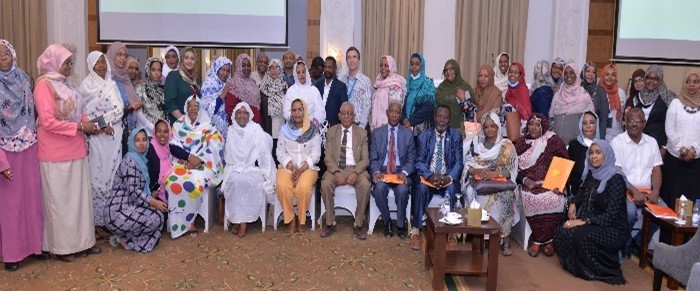Supporting Sudan's nutrition targets: taking action through academia and research
Khartoum, Sudan — Conflict, natural disasters, disease outbreaks and economic deterioration have severely affected the population of Sudan. A staggering 11.7 million people in the country are food insecure, and with the compounding effects of the global food and nutrition crisis, that number jumped by 2 million from 2021 to 2022, according to the United Nations Office for the Coordination of Humanitarian Affairs (OCHA).
The national Scaling Up Nutrition (SUN) Movement Secretariat is working tirelessly to finalize its National Multisectoral Nutrition Plan 2023–2027 for Sudan, as more than 30 per cent of the country is affected by critical levels of stunting.
As part of these efforts, the Sudanese SUN Research and Academia Network (RAN) was revitalized in a two-day advocacy workshop in March 2023 organized by the Federal Ministry of Health, the national SUN Movement Secretariat, the Ministry of Higher Education and Scientific Research, and the University of Khartoum, with support from UNICEF.
The network was initially established in February 2019, but its work was paused due to the geopolitical situation in Sudan. However, the role of RAN is critical in efforts to improve the nutrition landscape in the country. By bringing together researchers, academics and other stakeholders, the network can drive evidence-based nutrition policies and programmes, build research and teaching capacity, and position nutrition as a key issue in Sudan. If the network's strategic objectives are implemented effectively, they will support the monitoring, evaluation and learning components of national nutrition strategies and plans.
 The event brought together over 100 academics and research experts from national and state universities and research institutions, along with representatives from other SUN Networks, including United Nations agencies, donors, the private sector and civil society organizations.
The event brought together over 100 academics and research experts from national and state universities and research institutions, along with representatives from other SUN Networks, including United Nations agencies, donors, the private sector and civil society organizations.
In his remarks, Professor Zeinelabdin Karrar, RAN Chairperson, emphasized the importance of the SUN Academia Network in Sudan. He explained that reducing malnutrition in all its forms requires targeted interventions across the health, food, WASH (water, sanitation and hygiene), education and social protection systems, as well as the promotion of environments that enable political and policy processes. He expressed his certainty that RAN will advance the nutrition research agenda and contribute to sustainable progress towards the vision of the SUN Movement in partnership with the other SUN Networks.
The SUN Movement is confident that the relaunch of RAN in Sudan has the potential to contribute significantly to the achievement of nutrition targets in the country.